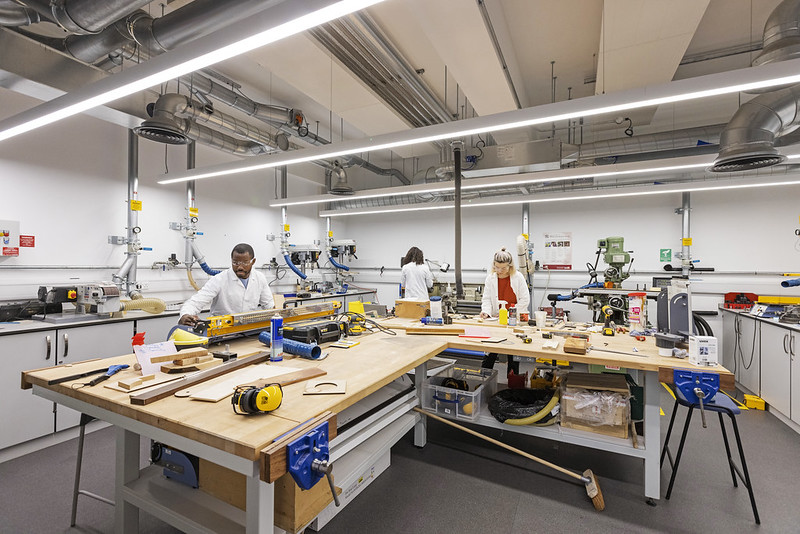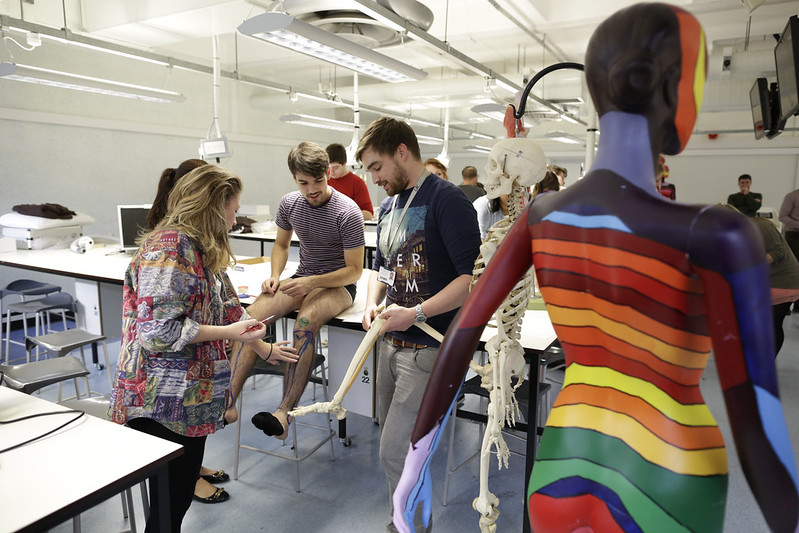CILT
Key facts
- Award: Certificate
- Course type: Taught
- Mode of study: Part time
- Modules: 2
- Duration: 1 year
- Total Hours: 300
- Total credits: 30 (at Level 7, Masters)
What is CILT?
The Certificate of Learning and Teaching (CILT) is an accredited qualification leading to Associate Fellowship of the Higher Education Academy. It is a two-module introduction to the knowledge, skills and principles required to be an effective teacher. CILT covers the theories, principles and techniques of learning and teaching in higher education. Participants will also explore learning and teaching practice within their own disciplinary and institutional contexts. The course combines workshops, independent study and work-based activity such as teaching observation.
As a 30-credit course, CILT takes 300 hours to complete. This is made up of teaching sessions, preparation and reading, and completion of the assessments.
Who is CILT for?
Any member of staff who teaches QMUL students but does not convene modules. To be eligible to attend the programme, you should be teaching QMUL students for at least 10 hours in the academic year in which you start CILT.
"I have learnt many new teaching methods that I plan to use in future to enhance student engagement and critical thinking."
"The way that teaching is set up on the module clearly demonstrates the good practice that the module teaches about, e.g. active learning; use of flipped classroom."
Admissions
Admissions are now open for September 2022 start, please see How to Apply.
Deadline for admissions is Friday 15th July 2022.
Course aims and learning outcomes
The overall aim of the programme is to help staff develop and enhance their teaching in both disciplinary and interdisciplinary environments. Staff who take the programme will be able to complete observations and practice teaching skills, as well as learning about a variety of teaching methods and theories of learning.
The programme aims to support QMUL’s strategic priorities for its education provision in Strategy 2030 by equipping staff with the knowledge, skills and attitudes that will make them confident, effective and inclusive practitioners in their role, by acknowledging and accommodating the needs of the different disciplines, Schools and professional services at QMUL, and our diverse student population
Intended learning outcomes (aligned to the UK Professional Standards Framework Dimensions)
Participants who successfully complete this course will…
Have knowledge and understanding of:
- Theoretical foundations, empirical evidence, and current trends of teaching and learning in higher education, in the UK and beyond (K3)
- Applications of theory and practice to teaching and learning in their discipline (K2)
- The wider context of UK higher education, including its regulatory bodies and processes, professional benchmark frameworks, development and funding, and major agendas (V4)
- The institutional regulatory, administrative, planning, and technological processes associated with effectiveness in their role (V4)
Be able to:
- Design / teach / provide effective learning sessions and/ or learning support and guidance through selective use of methods, approaches and technologies for active learning that align with measurable learning outcomes (A1, A2, K5);
- Implement strategies for reviewing of and feedback on learning that promote learners’ self-reflection and efficacy (A3)
- Use evidence from educational research and scholarship, subject research, peer dialogue and
observation, evaluation and self-reflection, to continually assess needs, develop and enhance their practice of teaching and / or supporting learning (A5)
Demonstrate attributes:
- [Cultivate a] student centred and internationally minded outlook on facilitating learning, evidenced through e.g. Using learning resources that represent the internationality of subject research and its practice; Designing learning environments and resources that consider the diversity of their students, meet established guidelines for accessibility and inclusivity, and follow best practices on minimising unconscious bias and deterring plagiarism (V1);
- [Demonstrate a] creative drive for facilitating learning across continuums of academic ability, prior knowledge and background, evidenced through e.g.: Scaffolding of learning resources, activities, assessment, support and guidance to maximise learners’ equality of opportunity (V2);
- [Demonstrate an] enquiring and collaborative attitude to education practice, evidenced through e.g.: Engaging critically with literature and research in education; Developing a rounded knowledge of the variety of subject specific approaches to teaching and learning; Engaging critically with the evidence from evaluation and reflection on the effectiveness of the approaches and resources used in their practice (V3).
Assessment
There are four summative assessments on CILT, all coursework: one is a presentation, while three are written. All four assessments are aligned to Descriptor 1 of the UK Professional Standards Framework. Criteria reward use of examples from your own teaching practice and the ability to link educational research and theory to the needs of your own disciplinary and institutional contexts. Please see the Taught Programmes Handbook for the full criteria.
Modules
ADP7116 / ADP7216 (DL): Learning and Teaching in Higher Education (15 credits)
ADP7117 / ADP7217 (DL): Learning and Teaching in the Disciplines (15 credits)
Mode of study
Participants have flexibility to take modules face to face or via distance learning.


